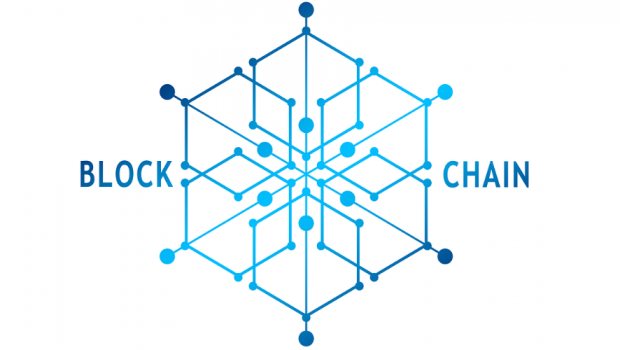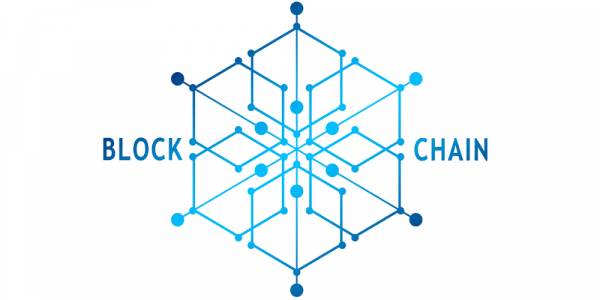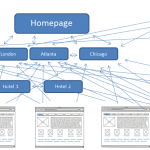Level Up! Introducing Blockchain to Your Business
Blockchain technology harnesses the power of an unlimited number of individual CPU’s to create a computing network of almost unlimited power. In addition to allowing blockchains to solve incredibly complex problems, they allow transactions to be confirmed by a majority “decision” of thousands of users, rather than a single entity.
This means that blockchains offer a significant level of security against manipulation by a single individual. This offers an almost unlimited potential for enterprise solutions. Here are some ways that blockchain technology is poised to revolutionize the business world.
What It Means for the HR and Recruitment
One of the most fundamental problems for businesses can be solved with blockchain technology. When employees lie on a resume, it can be very difficult to prove. Companies and businesses can spend a great deal of money on background checks and investigation.
In fact, in many cases, these can be so time consuming and/or expensive for small businesses that they simply don’t do them. In a survey of over 2,000 hiring managers, more than 58% of them caught lies on the resumes of prospective employees.
What blockchain technology offers is a far more advanced and sophisticated network for HR and recruitment divisions. Not only can blockchain technology help to verify the data given on resumes, but it can also help assess candidates on a far broader scale to see if they would be a good fit for an open position.
Imagine if you were looking for a mid-level manager and could include some of the personality traits you were looking for as well as experience, background and education. Instead of having to meet with numerous candidates to see how they would fit your company, you could instead check resume information and search for a person whose vision and values also align with the company’s. This is the kind of exquisitely detailed information that blockchain technology is capable of delivering.
What Are Smart Contracts
In the modern world, most transactions involve a third party or entity. In other words, one person or party generally pays another party for a certain good or service with some type of currency. That currency is controlled by a third party or entity, so very few transactions ever occur simply between two parties without involved a third: the controller of the currency.
Conversely, however, the third party that controls the currency has no interest in monitoring the exchange. They merely provide the means by which the value of the goods or services are established.
Smart contracts are a form of bartering. They allow two parties to engage in a currency-free exchange of goods or services. But, the same contract that establishes the terms of the barter also polices and regulates the barter.
Anything that currently involves any kind of contract could actually be negotiated through blockchain, which can be tracked by a decentralized system and enforced by automatic protocols. The decentralized system and automatic protocols are important because it takes the power out of the hands of individuals and places it within a collective that has no interest in the outcome of the transaction.
In almost all negotiations, one party tends to almost invariably have the upper hand and can often exploit their position to get more favorable terms. Most often to the detriment of the other party. Because of the nature of decentralized contracts, this puts both actors on a more level playing field.
The decentralized nature of smart contracts also helps speed things along, which cuts down on project delays. In too many instances when a currency exchange is involved, multiple players (generally executives) need to give approval before plans can proceed.
In almost all cases, the balance of power rests with the “client” or the party or individual with the currency. Projects can sometimes be held up for months just waiting for approval, which can sometimes be used as leverage and creates a form of “industrial blackmail.”
Smart contracts put the approval process in the hands of the blockchain – essentially a faceless entity with no vested interest in the outcome one way or the other – which significantly levels the playing field.
The Financial Benefit
One of the most preeminent ways that businesses are currently utilizing blockchain technology is through the use of cryptocurrency. While cryptocurrency is still in many ways in its infancy, the potential to provide benefit to both businesses and consumers is almost limitless.
Because blockchain technology inherently creates its own ledgers, this could significantly reduce the amount of accounting that businesses need to do on their own. In addition, while banks may use sophisticated accounting systems, even the systems that banks currently use do not match the capabilities of blockchain technology.
Under most current banking systems, the impetus is on the business owner (or individual) to monitor their transactions carefully to ensure there has not been an accounting mistake on the part of the bank. If one is discovered, the responsibility lies with the business owner to prove it has been made.
Because blockchain technology involves thousands of users checking every transaction and essentially coming to agreement on the validity of it, the probability of error is vastly reduced.
Blockchain technology can also help businesses reduce procession costs by consolidating and automating tasks for increased efficiency. It allows a wide variety of tasks such as record keeping, fulfillment and cash management to be brought onto one platform.
This can help business owners drastically improve their business processes by creating better productivity, efficiency and improved time management not to mention cutting down overhead.
Changing Your Marketing Strategy
Any time a good or service is controlled by a third party, blockchain has the ability to create a more neutral playing field. Advertising is just one more arena where blockchain has the capacity to seriously disrupt current models.
Because blockchain operations allow for both transparency and security at the same time, this allows marketers to utilize the tech to quickly identify target viewers on their own and cut out the middleman such as the social media giants that currently sell the service of identifying target viewers on their sites.
In addition to giving marketers the power to find their own target markets, blockchain technology also gives consumers a great deal of power over what type of marketing content they do and do not want to view.
The technology also allows for better control by the consumer over their own private information. While this may lead to fewer leads for marketers, it also means the quality of the leads will be stronger, allowing them to focus their efforts more directly to those with a genuine interest in their product or service.
Ultimately…
Blockchain technology that has the power to benefit so many businesses is the decentralization of information. As they say, knowledge is power and much of what large businesses and corporations sell is “knowledge” in the form of information. Blockchain technology could make that information more democratic and readily available to even the smallest of businesses and companies at a fraction of the cost of current informational services.
Author bio:
Jasmine Williams covers the good and the bad of today’s business and marketing. She was rummaging through her grandma’s clothes before it was cool and she’s usually hunched over a book or dancing in the kitchen, trying hard to maintain rhythm, but delivering some fine cooking (her family says so). Tweet her @JazzyWilliams88







![A Quick Guide to IGTV [Infographic]](https://technofaq.org/wp-content/uploads/2018/07/a-quick-guide-igtv-150x150.jpg)








